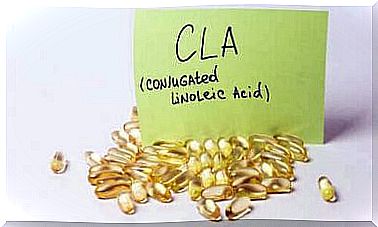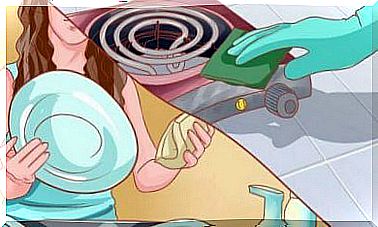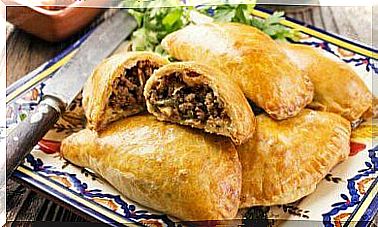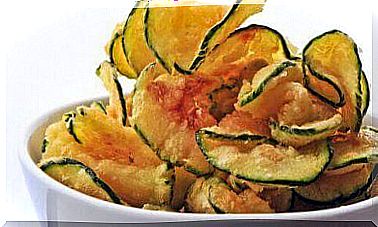3 Tips To Avoid Cross-contamination
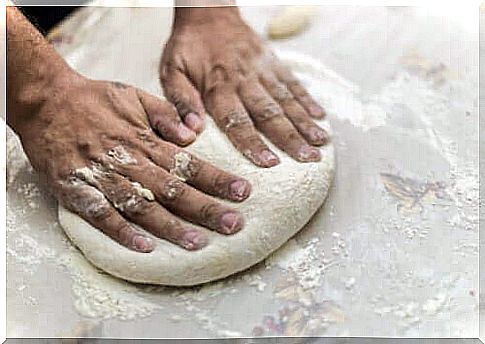
The need to avoid cross-contamination is important in diseases such as celiac disease. It is the phenomenon through which a person can be poisoned by allergens or microorganisms in a product or utensil that was in contact with a food we have ingested.
Below we will give you a number of tips to avoid cross-contamination. That way, you will reduce your risk of suffering from acute illnesses resulting from food poisoning or allergies. Do not forget that maintaining good food safety is essential to protect your health.
Three recommendations to avoid cross-contamination
Below we will explain three things you need to take into consideration when handling the foods you want to eat. Be sure to reduce the risk of getting sick!
1. Do not allow prepared and raw foods to touch each other
As a general rule, cooking inactivates microorganisms and toxins in foods that can make you sick. Scientific evidence suggests that low or high temperatures kill nematodes such as anisakis.
However, if you put prepared foods in contact with raw foods that contain harmful bacteria, then they can jump from one product to another and start multiplying. This increases the microbiological risk and causes cross-contamination.
We recommend that you always save space in your kitchen for the foods you have prepared, separate from the place where you store raw products. A very typical example is mixing cooked vegetables with raw meat or fish.
This action poses risks to health, especially when the animal product has not been exposed to frost or disinfection.
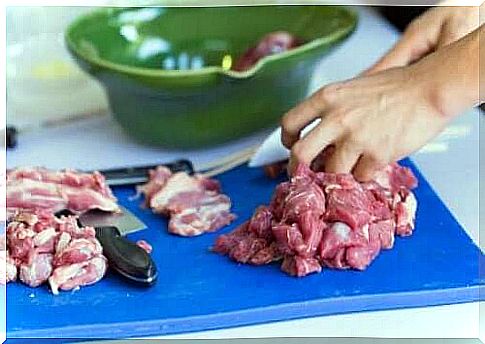
Meat and vegetables should not come into contact until they have been cooked.
2. Do not use the same knife to cut all foods
Just as it is not a good idea for raw and prepared foods to touch each other, one should also not use the same tools to handle them. A typical example of not being careful about cross-contamination is by sharing utensils that have touched gluten.
A study published in the Journal of Food Protection shows that cleaned utensils should be used to cook for a person with celiac disease. In addition, one should make sure that the utensils have not been in contact with any foods that may contain gluten.
The same applies if the product in question contains bacteria which are pathogenic to humans. When handling different foods, it is essential to wash the utensils thoroughly to avoid these kinds of situations.
Pans, pots and oil can also transmit bacteria
In addition to being careful when handling utensils , you should also disinfect cooking items including pans and pots after using them. The bacteria and allergens that they may contain after cooking can be transferred to the foods that are placed there.
People with celiac disease are very susceptible to this type of cross-contamination. However, there are also cases where bacteria manage to survive in the pot and pan and multiply when they come in contact with the food that is placed there.
But it is very unlikely that it will happen. There must be enough bacteria or allergens to cause specific damage. As mentioned in the research published in the Journal of Food Protection , it is rare for food poisoning to occur if there is not a large amount of bacteria.
Individuals suffering from celiac disease are exposed to these situations if they cannot avoid cross-contamination. There need be only a few proteins to trigger an autoimmune process in these patients.

Although these recommendations for avoiding cross-contamination are easy to follow, many people forget them though.
Pay attention to food hygiene to avoid cross-contamination
Food poisoning due to lack of preventative measures is more common than one might think. For this reason, it is essential to follow the advice we have given above to reduce the risk.
Both extreme hygiene and lack of hygiene are detrimental to long-term health. When handling food, one should try to avoid certain risky behaviors.
Also, do not forget that thorough cooking and freezing are able to inactivate many disease-causing organisms, which can cause food poisoning and other acute problems. For example, exposing fish to very low temperatures inactivates anisiakis.
Make sure you follow the basic rules we have explained here. Also check the quality and hygiene of the utensils you use in the kitchen to handle food. Any action can be beneficial.



